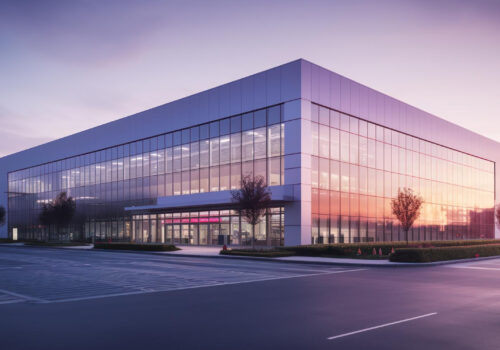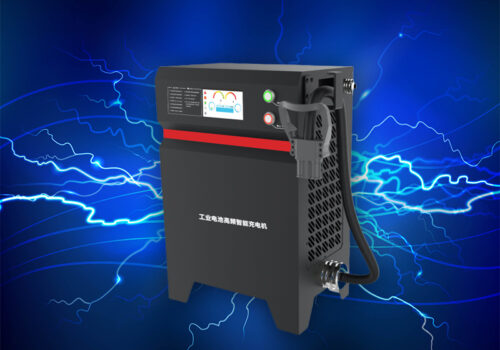
The industrial sector is the backbone of modern economies, driving innovation and growth. As the world moves towards more sustainable and efficient energy solutions, the demand for advanced power sources has never been higher. Industrial power lithium batteries have emerged as a key player in this transformation, offering a combination of performance, reliability, and environmental benefits that traditional power sources can’t match.
Global Development Status
The global industrial power lithium battery market is experiencing rapid growth, driven by several factors:
- Technological Advancements: Continuous improvements in lithium-ion technology have led to batteries with higher energy densities, longer lifespans, and improved safety features.
- Regulatory Support: Governments worldwide are promoting the use of cleaner energy sources through incentives and regulations, encouraging industries to adopt lithium batteries for their low carbon footprint.
- Economic Viability: As the cost of lithium batteries decreases and their performance improves, they are becoming more economically viable, even in comparison to traditional lead-acid batteries.
- Expanding Applications: From material handling equipment like forklifts to specialized vehicles like aerial work platforms, the applications of industrial lithium batteries are expanding, catering to a wide range of industries.
- Global Supply Chains: The establishment of robust global supply chains for lithium and other raw materials has facilitated the widespread adoption of lithium batteries.
Market Trends and Drivers
Several trends are shaping the future of industrial power lithium batteries:
- Increased Automation: The rise of automated warehouses and factories is creating a demand for reliable and efficient power sources that can keep up with the pace of automation.
- E-Mobility: The growth of electric vehicles (EVs) is influencing the development of lithium batteries, with technologies from the automotive sector being adapted for industrial use.
- Energy Storage Solutions: The need for efficient energy storage in renewable energy systems is driving innovation in lithium battery technology, with applications in grid storage and backup power.
- Customization and Scalability: Industries are seeking customized battery solutions that can be scaled according to their specific needs, leading to the development of more flexible and modular battery systems.
- Cycling Economy: The push towards a circular economy is encouraging the development of recyclable and reusable battery components, reducing waste and environmental impact.
Challenges and Opportunities
Despite the rapid growth, the industrial power lithium battery market faces challenges:
- Material Supply: The supply of key materials like lithium and cobalt needs to be managed sustainably to meet the growing demand.
- Safety Concerns: While lithium batteries are generally safe, incidents have highlighted the need for stringent safety standards and advanced battery management systems.
- Cost Reduction: Continued efforts are needed to reduce the cost of lithium batteries to make them more accessible to a broader range of industries.
- Innovation in Recycling: Developing efficient recycling processes for lithium batteries will be crucial for their long-term sustainability.

Prospects for the Future
The future of industrial power lithium batteries looks bright, with several prospects on the horizon:
- Solid-State Batteries: The development of solid-state batteries promises even higher energy densities and improved safety, which could revolutionize the industry.
- Artificial Intelligence: AI integration in battery management systems will enhance performance prediction, maintenance, and overall lifecycle management.
- Wireless Charging: Advancements in wireless charging technology could offer new possibilities for industrial equipment, reducing the need for physical connections and enhancing flexibility.
- Hybrid Systems: The integration of lithium batteries with other energy storage technologies, such as supercapacitors, could offer synergistic benefits in terms of power delivery and energy efficiency.
- Global Collaboration: International cooperation in research and development will be key to overcoming challenges and seizing opportunities in the global lithium battery market.
Conclusion: Embracing SpiderWay for a Sustainable Future
As the global industrial power lithium battery market continues to evolve, companies like SpiderWay are leading the charge. With 20 years of experience in battery research and production, and a global presence serving tens of thousands of customers across numerous countries and regions, SpiderWay embodies the innovation, reliability, and commitment to sustainability that the industry demands.
SpiderWay’s product lineup, including forklift lithium batteries, golf cart lithium batteries, aerial work platform lithium batteries, and lithium battery chargers, represents the pinnacle of industrial power solutions. Their focus on quality, customization, and customer service makes them a trusted partner for businesses looking to embrace the future of energy.
As we look to a future where efficiency and sustainability go hand in hand, SpiderWay stands ready to power your operations with cutting-edge lithium battery technology. Join SpiderWay on this exciting journey towards a greener, more productive industrial landscape.
SpiderWay – Your Partner in the Evolution of Industrial Power.




Tom Brown
I think the article is missing some key information. It doesn’t mention the safety concerns of lithium-ion batteries.
William White
The article claims that lithium batteries are the key to a sustainable future, but I’m not convinced. We need to be careful not to overhype this technology.
Jane Doe
The article claims that lithium-ion batteries are the future, but I’m not so sure. What about the environmental impact of mining lithium? We need to consider all aspects of the issue.
John Doe
This article is a good starting point for understanding lithium battery technology, but it’s important to remember that there are many challenges to overcome before we can fully realize its potential.
Mary Green
This article is a good overview of the current state of lithium battery technology. It’s definitely worth reading if you’re interested in this field.
David Lee
I’m not convinced. The article is biased towards lithium-ion batteries and doesn’t consider other promising battery technologies like solid-state batteries. I think it’s important to have a balanced perspective.
Rose Mary
This article is so informative! I’ve learned so much about lithium battery technology. It’s amazing how far we’ve come, and I’m excited to see what the future holds!
Bob Smith
So, the future of energy is… lithium batteries? Really? How about we just focus on renewable energy instead?